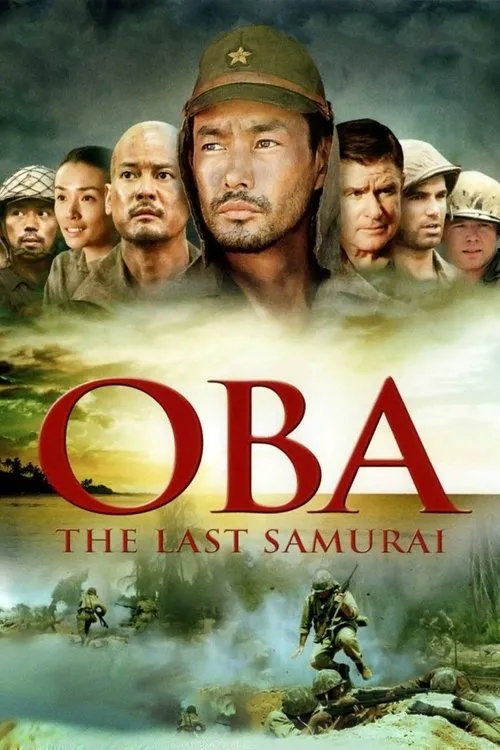Oba: The Last Samurai

Plot
In the tumultuous days of World War II, the small island of Saipan became a pivotal battleground between the Allied forces and the Imperial Japanese Army. As the American military prepared to invade the island, a sense of desperation spread among the Japanese forces stationed there. For Captain Oba Sakae, a seasoned and respected officer, the situation presented a daunting dilemma. Faced with the prospect of either taking his own life, as was the traditional honor among Japanese warriors, or being captured by the enemy and potentially subjected to brutal treatment, Oba resolved to find a third option. With a small band of like-minded men, including local residents who shared his conviction, Oba decided to make a break for the island's rugged mountains. Their goal was to evade capture by escaping the rapidly expanding American forces and regroup in an area where they could continue to fight in a more unconventional manner - as guerrilla fighters. While some viewed their decision as treacherous, others saw it as a testament to their determination to resist the encroaching forces of the enemy. As the battle for Saipan raged on, news of the Japanese surrender reached the island. However, Oba refused to believe this report, regarding it as nothing more than propaganda designed to break the spirits of the Japanese people. Undeterred by the apparent hopelessness of their situation, Oba led his men in a series of daring raids against the American forces. These attacks, marked by their cunning and stealth, earned them the reputation of being a formidable foe. The Americans, caught off guard by the tenacity of Oba and his men, began to refer to them as "The Foxes." One individual, however, stood out among the American officers tasked with capturing Oba - Lieutenant Colonel Henry M. Christman. A seasoned leader and commander, Christman possessed a unique understanding of the Japanese mentality. As he confronted the harsh realities of war on Saipan, Christman found himself developing a begrudging respect for Oba and his men. Despite being sworn enemies, Christman began to realize that Oba and his followers were not merely soldiers following orders, but individuals who genuinely believed in the cause they were fighting for. The unlikely respect that developed between Oba and Christman became a defining feature of the conflict on Saipan. Christman, determined to bring Oba to justice, also sought to comprehend the motivations and values that drove this enigmatic foe. Oba, on the other hand, remained fiercely dedicated to his mission, steadfast in his refusal to surrender, and unwavering in his commitment to his fellow soldiers. Throughout his campaigns against the American forces, Oba consistently demonstrated a mastery of the art of guerrilla warfare. His ability to blend seamlessly into the surrounding terrain and strike at the enemy with precision and speed made him a thorn in the side of the Allied command. Even as the tide of the war slowly turned in favor of the Americans, Oba remained an elusive and formidable opponent, refusing to back down in the face of overwhelming odds. The narrative of Oba: The Last Samurai serves as a poignant reminder of the complexities of war and the intricate web of motivations that drive individuals to make the choices they do. Rather than a simplistic portrayal of a conflict between good and evil, the film presents a nuanced exploration of the human experience during wartime. Through the character of Oba Sakae, viewers are invited to reflect on the nature of honor, loyalty, and sacrifice, and to ponder the consequences of the choices we make in the face of adversity. As the story of Oba: The Last Samurai unfolds, it becomes clear that the line between heroism and villainy is not always easy to draw. Captain Oba Sakae, once viewed as a ruthless enemy by the Americans, comes to be seen as a symbol of determination and resilience in the face of overwhelming adversity. In a film that explores the darker aspects of human nature, Oba emerges as a powerful reminder that even in the most dire of circumstances, there is always a choice to be made - and that the choices we make can forever alter the course of our lives.
Reviews
Recommendations




